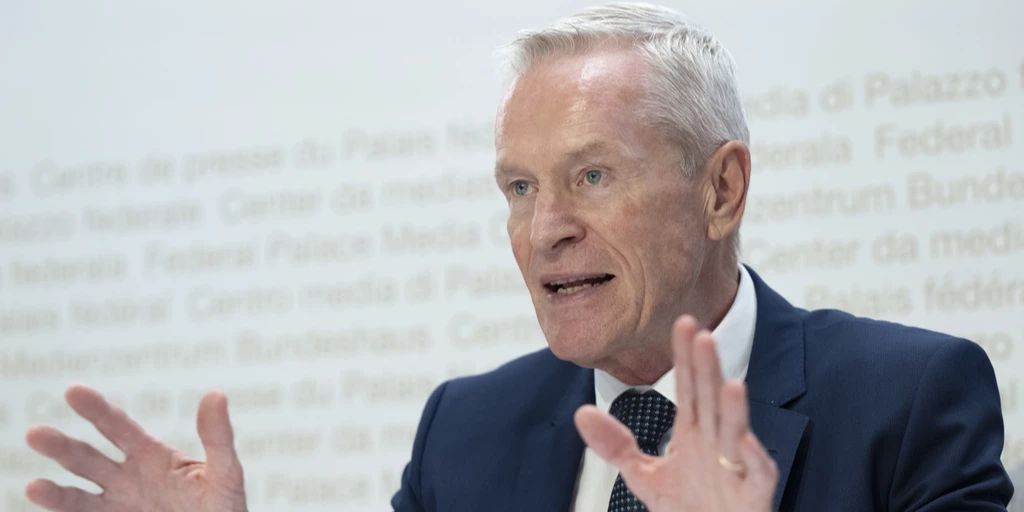Elcom CEO Werner Luginbühl had urgently warned of energy shortages. Despite this, Switzerland exported more electricity than it imported last winter.
The basics in a nutshell
- Contrary to a warning from Elcom Chairman Werner Luginbühl, there was no electricity shortage.
- However, he defends his appeal: “We got away with a black eye.”
- Many challenges will also have to be overcome in the energy sector in the future.
The head of the Federal Electricity Commission (Elcom) has been warning for years that Switzerland has too little electricity. Contrary to these expectations, Switzerland exported more electricity than it imported last winter. This surprising result can be attributed to a number of factors, as Werner Luginbuhl explains in an interview with the newspaper “NZZ”.
Mild winters and above-average rainfall have reduced consumption and operation of hydroelectric power plants. In addition, nuclear power plants were running at full speed. “That's the only reason we've gotten away with a black eye,” Luginbuhl asserts.
Low contribution from solar energy
Despite the positive balance in electricity trading, Luginbuhl warns against complacency. He believes that the fact that energy transition enthusiasts attribute the surplus to the expansion of solar energy is an exaggeration: photovoltaics play an increasingly important role in energy production. However: its contribution remains small compared to nuclear energy.
“Nuclear power plants provide about 13 terawatt-hours of electricity throughout the winter,” he says. “The expansion of photovoltaics in 2023 is expected to result in an additional winter electricity production of approximately 0.4 TWh.”
Although solar energy is becoming increasingly important, there are more challenges to overcome, he explains in an interview with NZZ: It is possible to take the two reactors in Piznau off the grid within a few years. At the same time, electricity consumption is expected to continue to rise. It is “uncertain” whether the expansion of renewable energies will be sufficient to fill this gap.
Werner Luginbuhl: “We escaped a black eye”
In the summer of 2022, Luginbuhl advised residents to stock up on candles due to looming electricity shortages. In the interview, he defended this recommendation, saying: “At that time, we could not rule out the possibility of a shortage in Switzerland in the winter.” “In a situation like this, it is important to show the public the consequences.”
The feared power shortages ultimately did not occur, thanks mainly to mild weather and heavy rain. The interruption of Russian gas supplies and maintenance work at French nuclear power plants could have affected import options in the winter: “Shortages were likely under these circumstances.”
Reserve and nuclear power plants
Despite criticism of Birr AG's fossil backup power plant construction, Luginbuhl also believes that backup power plants are necessary. They provide an insurance solution in the face of many uncertainties. The need for these power plants still exists.
Finally, Luginbuhl talks about the upcoming vote on the electricity law referendum. This law is considered crucial to expanding domestic electricity production. He explains that rejection means a setback: “If voters reject the electricity law, we will go back years.”
Opinion poll
Are you concerned about potential electricity shortages in Switzerland?
Luginbuhl disagrees with some politicians' view that new nuclear power plants could eliminate the need for a new electric code. He points to the long construction periods: “Even if Switzerland decides to build new nuclear power plants, there will still be significant risks in the medium term regarding security of supply.”

Lifelong foodaholic. Professional twitter expert. Organizer. Award-winning internet geek. Coffee advocate.

